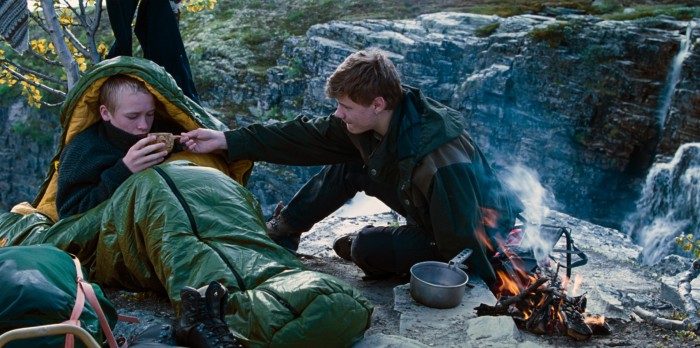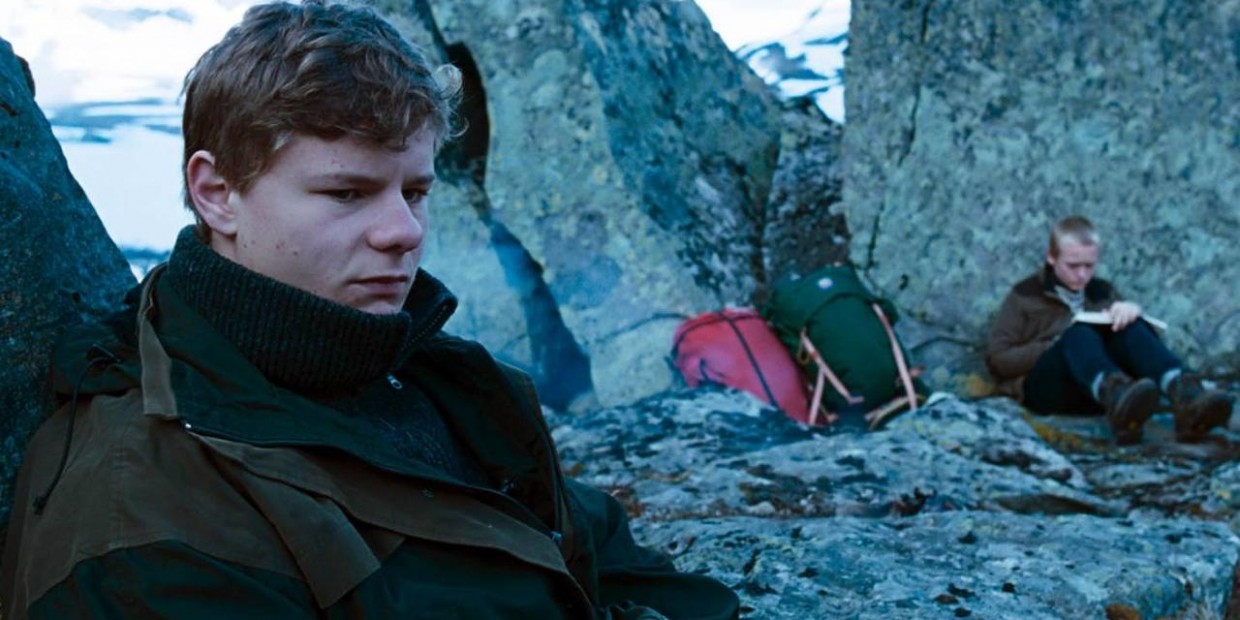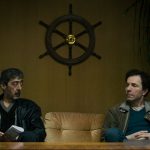By Lauren Hurrell
Directed by Henrik Martin Dahlsbakken
Gothenburg Film Festival review
As one of three films shortlisted by Norway to be their submission for Best Foreign Language Film at the 88th Academy Awards, Returning Home (native title, í… vende tilbake) deserves recognition for its fluctuating pathos and remarkable cinematography. Written, directed and produced by Henrik Martin Dahlsbakken, this impressive Norwegian film tracks a poignant journey of brotherhood, based on real experiences from Dahlsbakken’s own childhood.
Using grandiose, natural imagery reminiscent of the mountainous scenes of Michael Cimino’s The Deer Hunter, Returning Home shares a moving narrative about the repercussions of wartime service on family dynamics. The film not only reveals the family’s readjustment to the father’s return from Afghanistan, but also exposes the father’s isolation and discomfort in post-war recovery as he attempts to relocate himself in his peaceful, domestic life. It is unsurprising that his personal struggle drives him to leave the home once again, very soon after he has returned from his service, which instigates the turning point in the brothers’ relationship as they attempt to reach back into the comforting care of the paternal relationship by embarking on a demanding expedition to locate their father, Einar (Ingar Helge Gimle), on his prolonged reindeer hunt.
We are eased into the film as the scene of a majestic waterfall fades in, accompanied by a moving melody of trumpets that holds similarities to the sound of “The Last Post”, capturing the mood of post-war relief. The film then moves into a playful, slow-motion sequence of the two brothers play fighting together, isolating a moment of cherished family values that twinges with nostalgia, before the mood swiftly sobers into the story’s reality. The acting throughout is discrete yet powerful where dialogue is not extensive and facial expressions (in the form of warm, fleeting glances, wistful gazes or disapproving glowers) echo far louder than words.

These exchanges within the family reveal to us the varying elements of character and differing dimensions of their relationships; the younger brother clearly idolises his father, and there are fleeting moments of camaraderie in the paternal relationship, but it does not feel adequate in response to the father’s previous long-term absence, which is reflected more so by the reserved, tentative behaviour of the eldest son, Oskar (í…smund Hí¸eg). There is a sense of hypocrisy in the father’s words when he tells Oskar on the evening of his return, “Be there for the ones around you,” as he swigs from a bottle unsteadily and informs his son of his impulsive hunting trip planned for the next day. Despite previously teasing Oskar for his new ear piercing, claiming it would not be tolerated by the military’s standards, it is evident that Oskar has had to attempt to fill the shoes of a fatherly role in the home, both in his father’s absence and his mother’s poor health, to look after the younger brother, Fredrik (Fredrik Grí¸ndahl). This conflict of age and responsibility is reflected in the manner that Oskar holds himself around his friends; despite participating to an extent, he seems partially removed from the present moment.
The mountainous locations capture a sense of isolation and foreshadowing stasis, where symbolism is calculated in momentarily displaying each of the characters’ states of mind. In the splitting of ice sheets that trap the raging sub-zero waters below, the father’s entrapment in memories of wartime and discomfort of readjustment is emphasised in a singular, heightened, gauzy moment where the music intensifies and the muscles in his solemn face hold silent tension that is ready to shatter, as he glares through us beyond the camera with a glint of vulnerability in his piercing stare.

As the brothers cross the treacherous landscape, the difficulty of their task is presented in the long panning shots that emphasise their miniscule presence in comparison to their beautifully vast surroundings, however, the strength of their sibling bond allows them to cover the distance. A foreboding sense of suspense and solitude haunts throughout the film in intense music and a consistent pace, which emphasises the passivity of waiting to find their father, even though the brothers are being proactive. The cinematography draws on tones of pastel blues and greens, with stony greys and crystal waters, capturing the shadowy, static haze of winter’s cold frost that penetrates each landscape trapped in unceasing fluctuations of dawn and dusk, with a vastness of flat light in between.
The real heroism, a theme emphasised in the empowering yet tranquil score, shines through the union of the two brothers, as they have embarked on this journey to find their father, which results in an outcome that they did not expect. The final scene of reunion with their sick mother reveals both the growth and vulnerability of each of the brothers in their respectful natures, and the film ends with the brave younger brother’s watery-eyed gaze meeting our own for a prolonged moment, as we watch one solitary tear slowly roll over his camouflage-painted cheek.
The passionate ending of Henrik Martin Dahlsbakken’s film causes us to reflect not only on the remarkable visual value of the film, which is a testament to the natural beauty of Norway’s wilderness in an idyllic winter setting, but more so the relationships that we have attached ourselves to in the film as we have watched them become changed forever.
To bring Returning Home to your region, cast your DooVote here!
Recommended Viewing on FilmDoo:
(UK & Ireland only)








